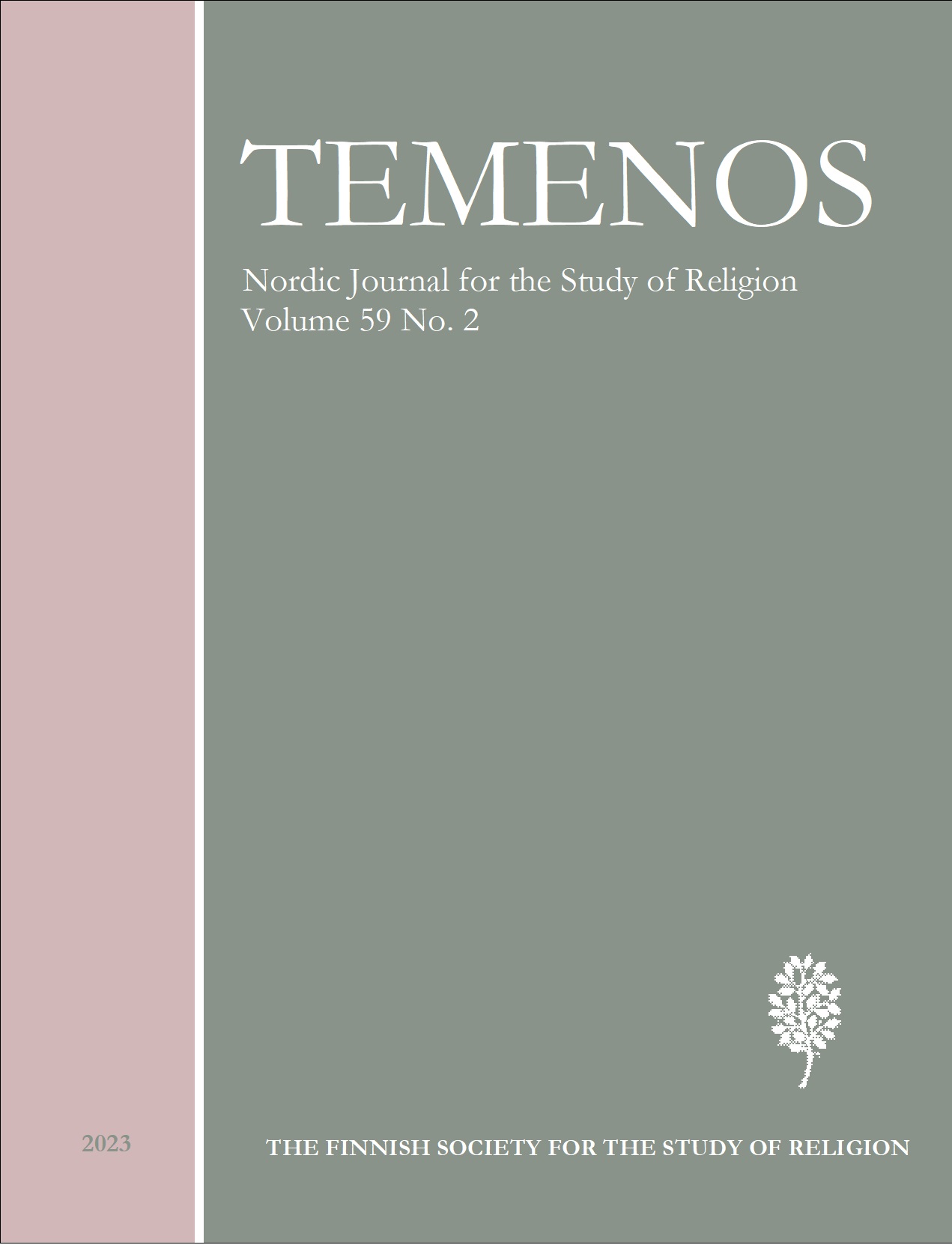How the Nineteenth-century Evangelical Revival Strengthened Faith and Undermined Christendom
A Swedish Case
DOI:
https://doi.org/10.33356/temenos.112471Keywords:
secularisation, modernity, revivalism, evangelicalism, church historyAbstract
This article deals with the paradoxical relationship between the nineteenth-century Evangelical Revival and secularization. It is argued here that the revival and its worldview played a role in increasing pluralism and choice in the nineteenth century – a process often related to secularization. The Evangelical movement both attempted to oppose modernity and rationalism and emphasized religious freedom, voluntarism, and individualism. It therefore induced and popularized self-reflection, doubt, and deconversion. It also favoured religious democracy in opposition to a state-imposed religious monopoly (at least in northern Europe). Furthermore, by dividing people into believers and nonbelievers, it emphasized religious polarization. This contributed to an undermining of established religious structures, fragmenting and pluralizing the religious landscape and giving people the option to abstain completely from religious commitment. The Swedish confessional (inner mission) revivalist denomination Evangeliska Fosterlands-Stiftelsen (EFS – approx. the Swedish Evangelical Mission Society), founded in 1856, is used as a case. The popular literature they published and distributed manifested an evangelical worldview. In this article four themes, based on the popular literature, are used to study empirically the changing role of religion in relation to nineteenth-century revivalism: ‘the dualistic worldview’; ‘conversion’; ‘activism’; and ‘self-reflection’.

Downloads
Published
How to Cite
Issue
Section
License
Copyright (c) 2023 Stefan Gelfgren

This work is licensed under a Creative Commons Attribution 4.0 International License.
Author's Guarantee
- The Author acknowledges that the Work will be publicly accessible on the Internet and that such access will be free of charge for the readers.
- The Author guarantees that the Work is her/his original work that has not been published before and cannot be construed as copying or plagiarism. Furthermore, the Author confirms that the Work contains no statement that is unlawful, defamatory or abusive or in any way infringes the rights of others.
- The Author confirms that she/he has secured all written permissions needed for the reproduction in the Publication of any material created by a third party.
User Rights
Under the CC BY 4.0 license, the Author/s and users are free to:
- Share — copy and redistribute the material in any medium or format,
- Adapt — remix, transform, and build upon the material for any purpose, even commercially,
- However, the Work must be attributed to the original Author and source of publication.
The license of the published metadata is Creative Commons CCO 1.0 Universal (CC0 1.0)
Author Rights
The Authors maintain the right to:
- copyright, and other proprietary rights relating to the Work,
- the right to use the substance of the Work in future own works,
- the right to self-archiving/parallel publishing (publisher's PDF allowed).
Rights of Publisher
- The Publisher reserves the right to make such editorial changes as may be necessary to make the Work suitable for publication in the publication, e.g. style of punctuation, spelling, headings and the like.
- The Publisher will publish the Work if the editorial process is successfully completed and reserves the right not to proceed with publication for whatever reason.
- The publication entitles the author to no royalties or other fees. This agreement will be governed by the laws of Finland.






